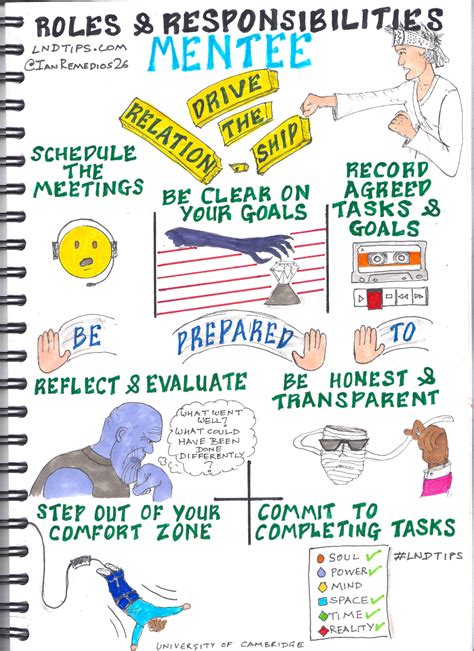The Role Of A Mentor: Guiding Your Career Growth

Having a mentor can be a valuable asset for anyone looking to advance their career. A mentor is someone who can provide guidance, support, and advice based on their own professional experiences. They can help you navigate difficult situations, learn new skills, and make connections in your industry. In this article, we’ll explore the role of a mentor in guiding your career growth and provide practical tips on how to find and work with a mentor.
What is a Mentor?
A mentor is someone who has more experience and knowledge in a particular field or industry and is willing to share that knowledge with someone who is less experienced. A mentor can be a colleague, supervisor, or even someone outside of your workplace. They provide guidance, feedback, and support to help you achieve your goals and reach your full potential.
The Benefits of Having a Mentor
There are many benefits to having a mentor, including:
- Access to Knowledge and Experience: A mentor can share their knowledge and experience with you, providing valuable insights into your industry or field.
- Networking Opportunities: A mentor can introduce you to people in your industry and help you build your professional network.
- Increased Confidence: Having a mentor can help boost your confidence as you navigate your career.
- Personalized Feedback: A mentor can provide feedback on your work and help you identify areas for improvement.
- Career Advancement: A mentor can provide guidance on how to advance your career and achieve your professional goals.
How to Find a Mentor
Finding a mentor can be challenging, but there are several ways to go about it:
- Look Within Your Network: Start by looking within your own professional network. Is there someone you admire and respect who could serve as a mentor?
- Join Professional Organizations: Joining professional organizations in your industry can be a great way to meet potential mentors.
- Attend Industry Events: Attending industry events and conferences can also be a good way to connect with potential mentors.
- Use Online Resources: There are several online resources, such as LinkedIn, that can help you find potential mentors.
How to Work with a Mentor
Once you’ve found a mentor, it’s important to establish a positive and productive working relationship. Here are some tips on how to work effectively with a mentor:
- Set Clear Expectations: Discuss your goals and expectations with your mentor upfront to ensure you’re both on the same page.
- Be Open to Feedback: Be receptive to feedback and willing to act on it to improve your skills and abilities.
- Communicate Regularly: Regular communication is key to maintaining a strong working relationship with your mentor.
- Take Initiative: Take initiative and seek out opportunities for growth and development.
- Show Gratitude: Show your mentor appreciation for their time and guidance.
FAQs
What is the difference between a mentor and a coach?
A mentor is someone who provides guidance and support based on their own professional experience, while a coach is someone who helps you develop specific skills or achieve specific goals. Both can be valuable resources for career growth.
What are some qualities to look for in a mentor?
Some qualities to look for in a mentor include experience and expertise in your field, a willingness to share their knowledge, good communication skills, and a positive attitude.
How often should I meet with my mentor?
The frequency of your meetings with your mentor will depend on your goals and schedules. It’s important to establish a regular meeting schedule to maintain a strong working relationship.
What if my mentor and I don’t have a good working relationship?
If you find that you and your mentor are not a good match, it’s important to communicate openly and honestly about your concerns. If necessary, you may need to seek out a new mentor who is a better fit for your needs.
Can a mentor help me change careers?
Yes, a mentor can provide guidance and support as you navigate a career change. They can help you identify transferable skills and provide advice on how to make a successful transition.
Conclusion
A mentor can be a valuable asset for anyone looking to advance their career. They provide guidance, support, and advice based on their own professional experiences. To find a mentor, start by looking within your own network or joining professional organizations in your industry. Once you’ve found a mentor, establish a positive and productive working relationship by setting clear expectations, being open to feedback, communicating regularly, taking initiative, and showing gratitude. With the help of a mentor, you can achieve your professional goals and reach your full potential.
